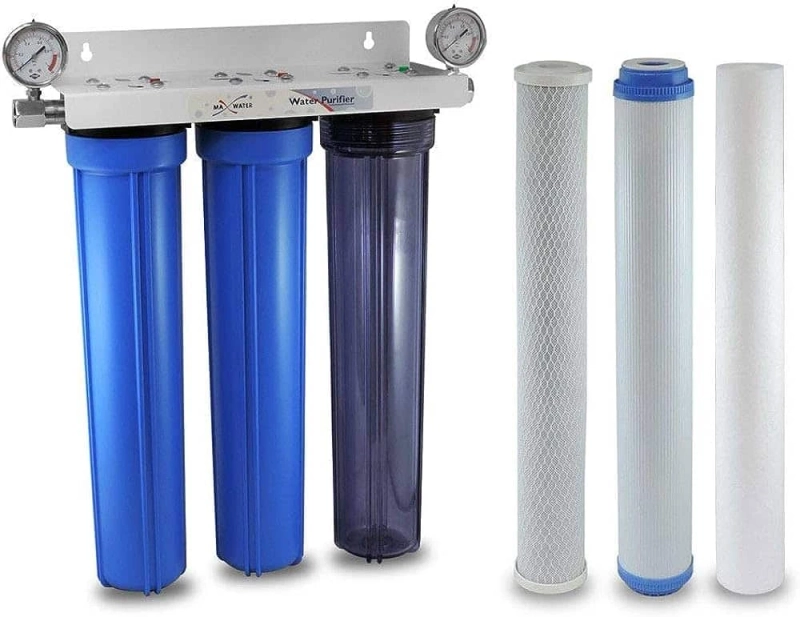Introduction
Welcome to the realm of self cleaning filters, where innovation meets efficiency. In today\'s fast-paced world, where time is of the essence, self cleaning filters emerge as heroes, simplifying maintenance routines and enhancing filtration processes. Let\'s embark on a journey to unravel the mysteries and unveil the wonders of self cleaning filters.
Understanding Self Cleaning Filters
What are Self Cleaning Filters?
Self cleaning filters, also known as automatic filters, are ingenious devices designed to remove impurities from liquids or gases without the need for manual intervention. These filters employ various mechanisms such as backwashing, scraping, or shaking to cleanse themselves, ensuring uninterrupted operation and prolonged lifespan.
Self cleaning filters utilize advanced technologies to detect particle buildup and initiate the cleaning process automatically. By eliminating the reliance on manual cleaning, they minimize downtime, reduce maintenance costs, and optimize filtration efficiency.
The Mechanisms Behind Self Cleaning Filters
Self cleaning filters employ diverse mechanisms to rid themselves of contaminants and maintain peak performance. These mechanisms include backwashing, where the flow of fluid reverses to dislodge accumulated particles, and mechanical scraping or shaking, which physically removes debris from filter surfaces.
Additionally, some self cleaning filters utilize filtration media with inherent self-cleaning properties, such as hydrophobic coatings or electrostatic forces, to repel contaminants and maintain cleanliness automatically.
Applications of Self Cleaning Filters
Industrial Sector
In the industrial sector, self cleaning filters play a pivotal role in safeguarding equipment and processes from contamination. From water treatment plants to oil refineries, these filters ensure the purity of essential fluids, enhance product quality, and prolong the lifespan of machinery.
Municipalities and Water Treatment
Municipalities rely on self cleaning filters to purify water supplies and meet stringent quality standards. These filters remove sediments, debris, and microorganisms, ensuring the delivery of clean, potable water to communities while minimizing operational costs and maintenance efforts.
Food and Beverage Industry
In the food and beverage industry, maintaining hygienic conditions is paramount. Self cleaning filters ensure the purity of ingredients, prevent product contamination, and uphold sanitation standards, thereby preserving the integrity and safety of consumables.
Automotive and Aerospace
In automotive and aerospace applications, precision is paramount. Self cleaning filters protect critical components from particulate contamination, ensuring optimal performance, reliability, and safety in engines, hydraulic systems, and fuel lines.
Residential and Commercial
From swimming pools to HVAC systems, self cleaning filters enhance comfort and convenience in residential and commercial settings. By removing impurities from air and water sources, these filters promote health, efficiency, and sustainability.
Benefits of Self Cleaning Filters
1. Enhanced Efficiency
Self cleaning filters optimize filtration processes, ensuring consistent performance and minimal pressure drop. By removing contaminants promptly, they prevent clogging and maintain flow rates, thereby maximizing productivity and efficiency.
2. Reduced Maintenance
Say goodbye to tedious cleaning routines and hello to hassle-free maintenance. Self cleaning filters automate the cleaning process, eliminating the need for manual intervention and reducing downtime, labor costs, and associated risks.
3. Extended Lifespan
With regular self-cleaning cycles, filters remain pristine and functional, prolonging their lifespan and minimizing the frequency of replacements. This translates to cost savings, reduced waste, and enhanced sustainability over time.
4. Versatility
From coarse filtration to microfiltration, self cleaning filters cater to a wide range of applications and industries. Their adaptability and flexibility make them indispensable assets in diverse environments, where reliability and performance are non-negotiable.
5. Environmental Sustainability
By optimizing filtration efficiency and minimizing resource consumption, self cleaning filters contribute to environmental sustainability. They reduce water and energy usage, lower carbon emissions, and promote responsible stewardship of natural resources.
Challenges and Considerations
Maintenance Requirements
While self cleaning filters streamline maintenance procedures, they still require periodic inspection and servicing to ensure optimal performance. Regular monitoring and adherence to manufacturer recommendations are essential to prevent malfunctions and prolong filter lifespan.
Initial Investment
Although self cleaning filters offer long-term cost savings and operational benefits, their initial acquisition cost may be higher than traditional filters. However, the return on investment in terms of efficiency gains and reduced maintenance expenses outweighs the upfront expenditure.
Compatibility
Selecting the right self cleaning filter entails consideration of factors such as flow rate, particle size, and operating conditions. Ensuring compatibility with existing systems and processes is crucial to achieving seamless integration and maximizing performance.
Technical Expertise
Proper installation, calibration, and maintenance of self cleaning filters require technical expertise and specialized knowledge. Employing trained personnel or partnering with experienced suppliers ensures optimal performance and mitigates operational risks.
Self Cleaning Filter: Your Ultimate Filtration Solution
In conclusion, self cleaning filters represent a paradigm shift in filtration technology, offering unparalleled efficiency, reliability, and convenience. Whether in industrial settings, municipal applications, or residential environments, these innovative devices deliver superior filtration performance while minimizing maintenance efforts and environmental impact. Embrace the power of self cleaning filters and elevate your filtration systems to new heights of excellence.
FAQs (Frequently Asked Questions)
How do self cleaning filters detect impurities?
Self cleaning filters utilize sensors or differential pressure measurements to detect particle buildup and trigger the cleaning process automatically.Are self cleaning filters suitable for high-viscosity fluids?
Yes, self cleaning filters can effectively filter high-viscosity fluids, provided they are designed to withstand the specific operating conditions and viscosity levels.Can self cleaning filters be retrofitted into existing systems?
Yes, many self cleaning filters are designed for retrofitting into existing systems, offering a convenient upgrade path without extensive modifications.Do self cleaning filters require external power sources?
Depending on the mechanism employed, self cleaning filters may require external power sources such as electricity or compressed air for operation.What maintenance tasks are involved in self cleaning filters?
Maintenance tasks for self cleaning filters typically include periodic inspections, cleaning of external components, and replacement of filter media or consumables as needed.Are self cleaning filters environmentally friendly?
Yes, self cleaning filters contribute to environmental sustainability by optimizing filtration efficiency, reducing waste, and conserving resources.



